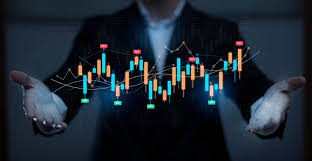Understanding Forex Trading A Comprehensive Guide to Education

In today’s fast-paced financial markets, forex trading education exglobal.pk has emerged as one of the most accessible avenues for individuals seeking to gain financial independence. This article aims to provide a detailed guide into forex trading education, covering its fundamentals, strategies, and best practices to enable individuals to navigate this intricate yet rewarding landscape successfully.
What is Forex Trading?
Forex, or foreign exchange, involves trading currencies against one another. Unlike traditional stock markets, the forex market operates 24 hours a day, five days a week, allowing traders from all over the world to participate at any time. Currencies are traded in pairs, with the most popular being EUR/USD, GBP/USD, and USD/JPY. The forex market is the largest financial market globally, with daily trading volumes exceeding $6 trillion, making it an attractive arena for both novice and seasoned traders.
The Importance of Education in Forex Trading
Education is paramount in forex trading. While the potential for profit can be substantial, the risks are equally significant. A robust understanding of market dynamics, trading strategies, risk management, and psychological factors can mean the difference between success and failure. New traders must dedicate time to learning the basics before diving in.
Basic Terminology Every Trader Should Know
- Pips: The smallest price move that a given exchange rate can make, based on market convention.
- Leverage: The ability to control a large position with a relatively small amount of capital.
- Margin: The amount of money required to open a leveraged position.
- Spread: The difference between the buying and selling price.
- Lot: A unit of measurement for a trade; it can be standard, mini, or micro.
Types of Analysis
Successful forex trading relies on thorough market analysis. There are three primary types of analysis that traders utilize:
1. Fundamental Analysis

Fundamental analysis involves evaluating a country’s economic indicators, political stability, and overall economic performance to make trading decisions. Traders look at data releases such as GDP, employment rates, inflation, and interest rates to predict currency movements.
2. Technical Analysis
Technical analysis, on the other hand, focuses on historical price movements and chart patterns. Traders use tools like moving averages, trend lines, and indicators such as the Relative Strength Index (RSI) and Fibonacci retracement to identify trends and potential entry and exit points.
3. Sentiment Analysis
Sentiment analysis looks at the overall attitude of traders toward a particular currency pair. By gauging whether traders are feeling bullish or bearish, this analysis grounds itself in the theory that market sentiment can drive price movements.
Developing a Trading Strategy
A well-defined trading strategy is essential for successful forex trading. Below are crucial components that traders should consider when developing their strategies:
1. Define Trading Goals
Establishing clear goals will guide your trading decisions. Are you looking for short-term profits, or is your focus on long-term growth? Understanding your objectives will shape your strategy.
2. Risk Management
Risk management is vital in forex trading. Traders should determine how much capital they are willing to risk on a single trade and use appropriate position sizing. Employing stop-loss orders can help limit potential losses.
3. Test Your Strategy
Using demo accounts to test trading strategies in a risk-free environment can provide insights into what works best for you. Backtesting your strategies on historical data can also help refine your approach before trading real capital.
The Role of Psychology in Trading
The psychological aspect of trading is often overlooked but is equally crucial. Successful traders must manage their emotions, avoid chasing losses, and adhere to their trading plans. Developing discipline and patience is key to navigating the volatile forex market.
Choosing a Forex Broker
Selecting a reliable forex broker is a significant step in your trading journey. Here are factors to consider when choosing a broker:
- Regulation: Ensure that the broker is regulated by a reputable financial authority.
- Trading Platform: Assess the trading platform’s functionality, ease of use, and available tools.
- Spreads and Commissions: Compare the cost of trading with different brokers to find the most economical option.
- Customer Support: Reliable customer service can help you navigate issues as they arise.
Continuous Learning and Adaptation
The forex market evolves continuously, influenced by global events, economic changes, and trader behavior. As such, continuous learning is essential. Traders should educate themselves on new strategies, market trends, and economic developments using resources such as online courses, webinars, books, and forums.
Conclusion
Forex trading can be a lucrative venture, but it requires significant education, strategy development, and psychological preparation. By understanding the fundamental concepts, analyzing the market effectively, and continuously adapting, traders can position themselves for success in this dynamic environment. Whether you are just beginning your forex trading journey or looking to sharpen your existing skills, education remains the cornerstone of profitable trading. Always remember, the market will always be there, but your time and capital are valuable—use them wisely.




